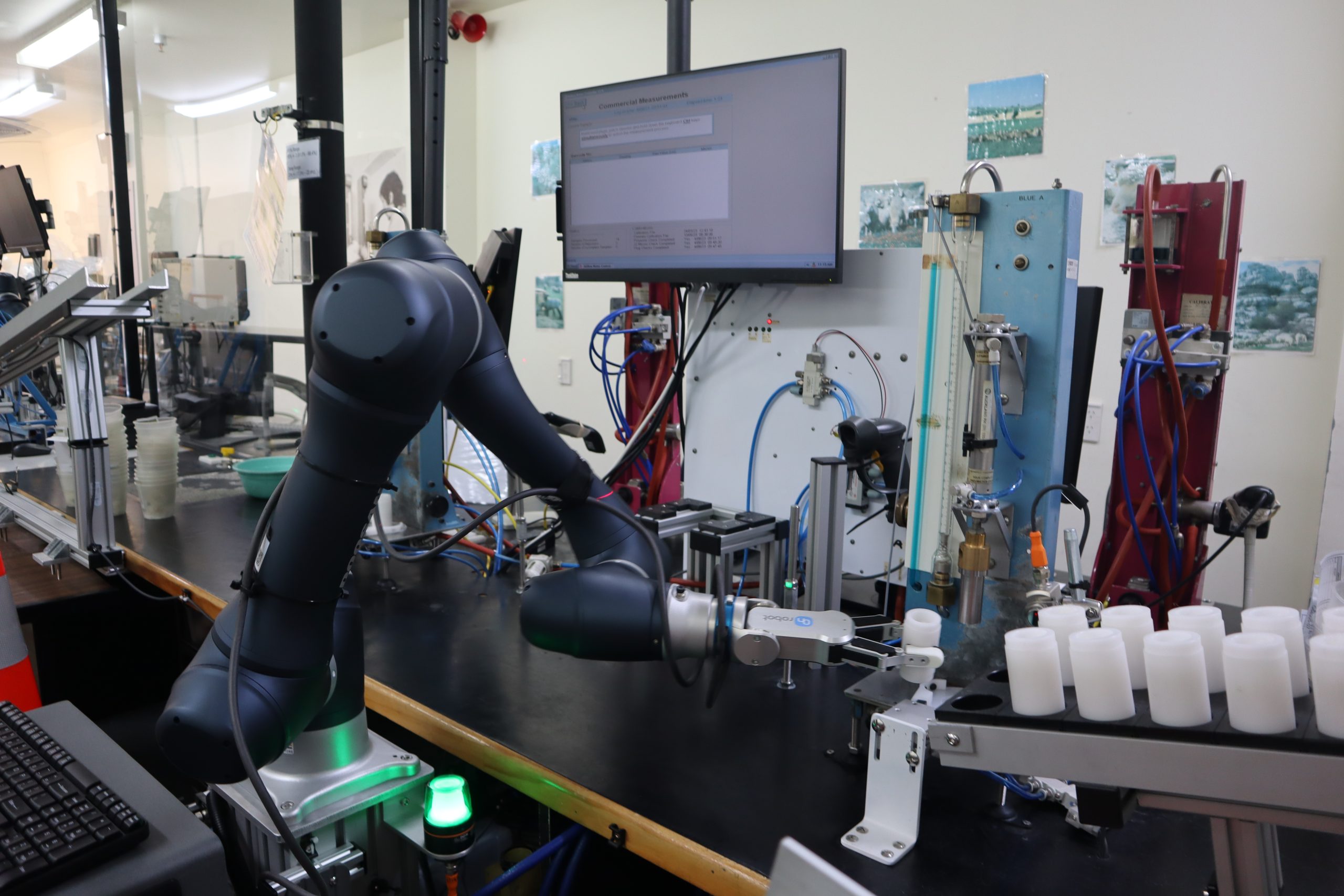SGS implements robotic technology into its wool testing
SGS runs one of the most sophisticated wool testing laboratories at its wool testing hub in Wellington New Zealand. It uses robotics for sample testing and has built a mini scouring line to test how wool will perform through the process.
SGS has been independently testing greasy wool, scoured wool, tops, and sliver to verify quality and quantity across different criteria for over 50 years. It is accredited to ISO 17025, and is licensed by the IWTO to produce IWTO certificates.
‘It doesn’t matter where you grow wool or buy wool from, there should be an SGS office nearby’, says Jeremy Wear at SGS Wool Testing Services New Zealand. ‘We have offices in almost every place that grows wool and alpaca and other animal and natural fibres, so that independent sampling or guidance is always available’.
SGS online services complement local offices and laboratories. SGS has strong links to textile buyers through 42 accredited textile testing laboratories in 26 countries, and is recognised by all major wool and natural fibre users as a trusted fibre and textile testing and inspection authority.
‘Wool exporters or wool growers in countries with no internationally recognised wool testing services can contact us here in New Zealand and we will liaise with the SGS office closest to the origin of the wool you wish to buy or sell to arrange for that wool to be tested with us. This service is quick and cost effective, particularly when a number of samples are provided. Verifiable reporting is provided electronically’, says Jeremy Wear.
‘Fibre testing and certification provides a layer of assurance for greasy wool buyers who are more likely to pay a premium price when information about processing performance can be provided’, he says. ‘To be sure about the characteristics of wool or any other natural fibre you are buying or selling we can provide inspection, verification, testing and certification services – anywhere in the world’.
‘Our testing services include Yield (woolbase and vegetable matter), Mean fiber diameter, and Color, as well as Staple length and strength, bulk, fibre curvature, fibre diameter distribution, diameter-length profile, and medullation’.
‘We also test greasy wool samples using a variety of low-cost fleece testing methods that are specifically designed for animal selection purposes. Fleece tests are carried out on samples from individual animals for breeding selection purposes. This is very popular with animal owners to help them improve their fibre quality’, outlines Jeremy Wear.
The recently introduced New Zealand National Standard for Wool is linked to New Zealand Farm Assurance Program (NZFAP) for companies that require animal welfare and traceability certification for their production. SGS can now include this NZFAP on their testing certificate.
Spanish-speaking Commercial Executive, Mariela Llaja, manages sampling services throughout Central and South America and says ‘we have an extensive service operating for wool exports from Peru and I can arrange independent sampling and testing in other parts of the continent via our offices in South America.
‘We urge wool grower cooperatives, and individual wool growers everywhere, to take advantage of our testing services to achieve better sales results. Our independent wool testing certification is simple and straightforward’, concludes Mariela Llaja.
For SGS on-line wool testing services – https://onlinestore.sgs.com/nz
Jeremy’s team woolonline@sgs.com
Mariela in Peru mariela.llaja@sgs.com or +511 5171900


